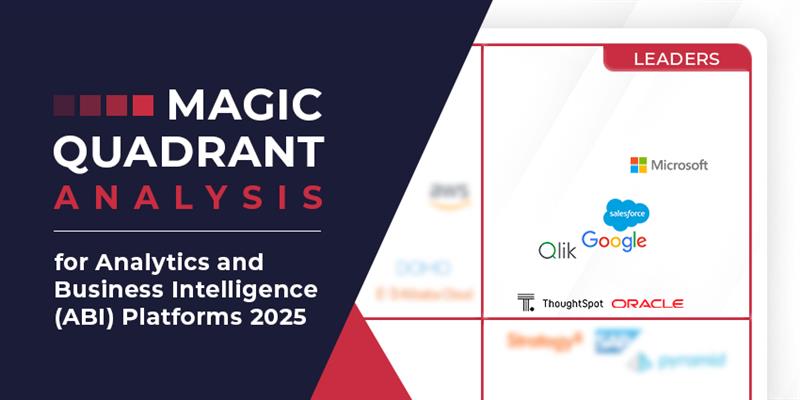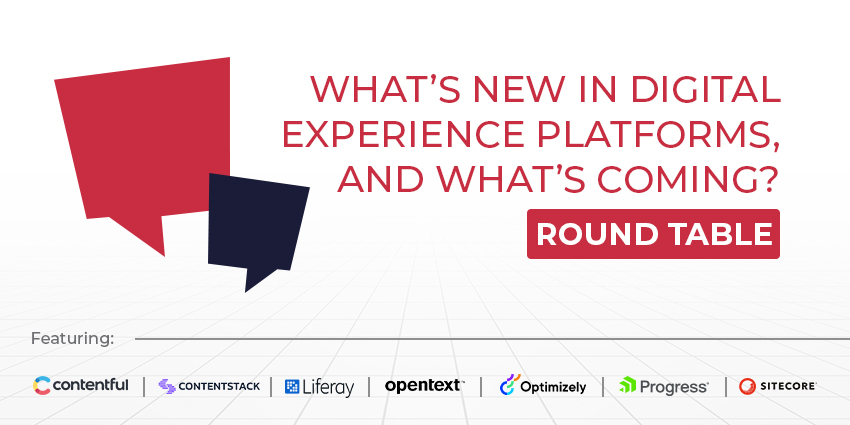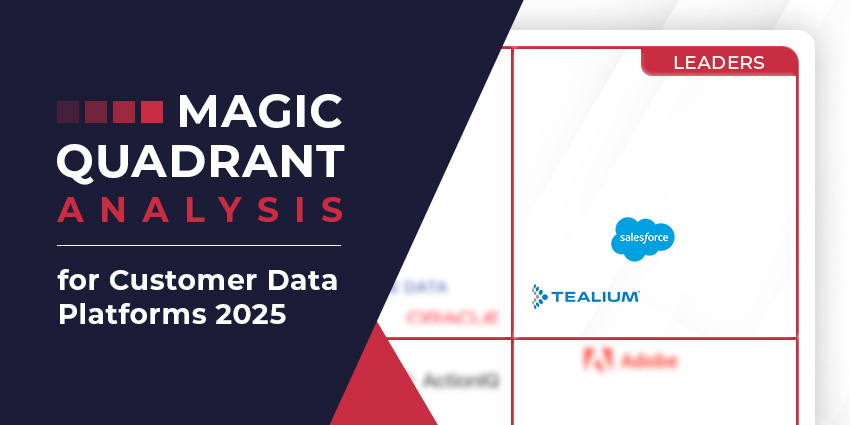Twilio has unveiled Conversation Relay, a suite that gives developers new tools to create seamless, natural voice interactions.
Sharing the news as part of its Q4 release, Twilio noted how Conversation Relay differentiates with real-time interruption handling. This ensures voice AI interactions stay smooth, frustration-free, and responsive, even when disruptions occur.
Another notable feature is its natural conversational pacing, which ensures voice AI conversations feel human-like, removing awkward pauses and robotic tones.
In a demo led by Jason Spulak, Senior Product Marketing Manager at Twilio, Conversation Relay could also switch language preferences on request.
“Conversation Relay takes the hassle out of building robust voice AI,” observed Spulak.
The effortless integration seamlessly connects to your existing AI tech and top-tier speech-to-text and text-to-speech providers like Deepgram, Google, and Amazon.
“We offer flexibility, scalability, reliability, and future-proof voice AI for any use case,” he concluded.
One potential use case is for a contact center IVR or intelligent virtual agent.
When enabling these, CX teams may also leverage Twilio Studio. The Studio offers a low-code/no-code app builder with drag-and-drop widgets to build voice, messaging, and comms workflows.
As part of its release, Twilio revamped the offering, so much so that it’s now called “Studio 2.0”.
Twilio Studio 2.0: The Next Evolution
Twilio Studio allows businesses to create flows for proactive notifications, IVR trees, customer survey flows, and more.
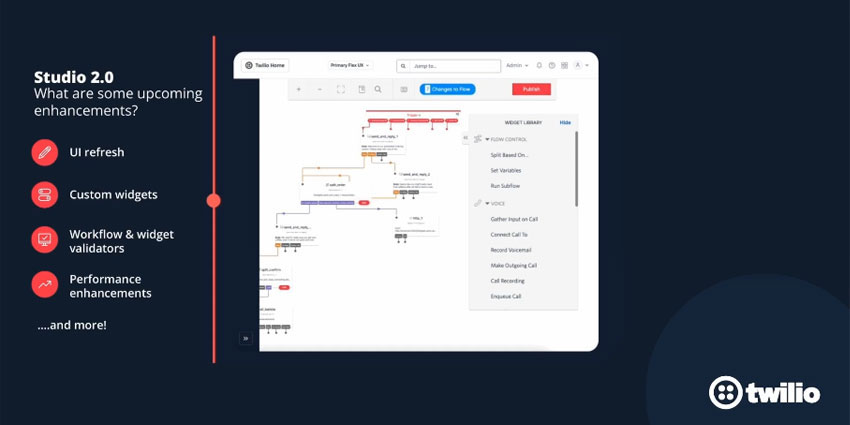
Studio 2.0 introduces a refreshed UI, enabling users to refine their CX workflows with access to custom widgets, Twilio function information, and more.
Yet, most notably, Twilio has enhanced Studio’s orchestration engine so it can build out cradle-to-grave service journeys that incorporate personalization and automation.
As such, Studio 2.0 enables AI-based routing decisions to internal, external, and AI team members. It also accesses CRM data to personalize interactions, automate custom wrap-ups, and more.
However, the use cases for Studio 2.0 go beyond contact center automation. CX teams can leverage it to enable predictive dialing, execute bidirectional marketing campaigns, and create workflows for tasks like digital transfers or post-call AI analysis.
Alongside Studio 2.0 and Conversation Relay, Twilio announced several other feature launches during its Q4 release. These include a Compliance Toolkit, Recommendation Traits tool, and Linked Events for Segment.
Twilio Introduces Compliance Toolkit In a Private Beta
A Compliance Toolkit will soon become available to Twilio Messaging customers. It uses intelligence to manage aspects of local regulatory compliance requirements.
How? By proactively detecting regulatory messaging violations and preventing non-compliant messages from reaching customers. For example:
- It prevents non-essential messages during silent hours (i.e., the middle of the night).
- It ensures messages don’t reach opted-out consumers.
- It confirms that phone numbers are still assigned to the intended recipients.
In doing so, the solution leverages AI to scan opt-out databases, identify local area codes and time zones, and verify phone number ownership through the FCC database.
As such, the Toolkit can help CX teams cope with changing regulations and varying rules for different types of messages. It also helps them interact with customers who move, change phone numbers, or live in different time zones.
However, Twilio warns that the Compliance Toolkit is not a comprehensive solution and that customers must still determine and adhere to all their compliance obligations.
Recommendation Traits & Linked Events Solutions for Twilio Segment
Last quarter, Twilio launched Recommendation Audiences for Twilio Segment, its customer data platform (CDP). The feature enables marketers to build audiences of people most likely to purchase a product, category, or brand.
Within Twilio Segment, there are Unified Profiles. These include various attributes about a person, such as their age, location, or loyalty member status. These attributes are known as “traits” and filter into a customer profile.
Now, with Recommendation Traits, marketers can identify the products or items a customer will most likely purchase and save those items to the customer profile.
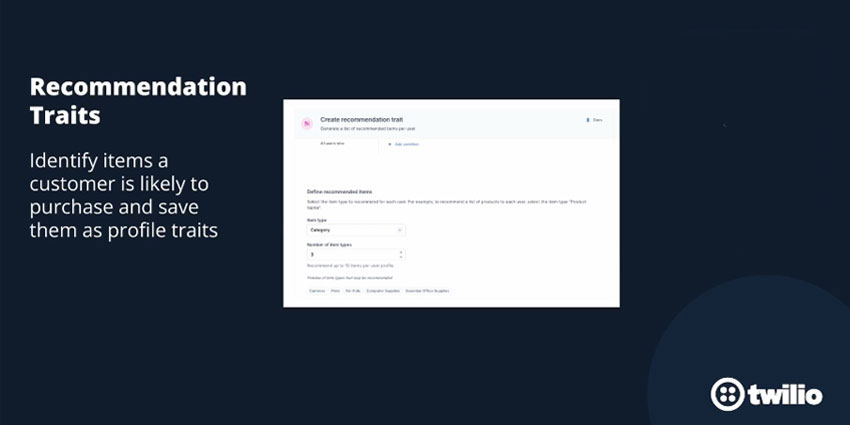
Marketers may then push these traits down any connected channel for ad campaigns, dynamic emails, web experiences, or even the organization’s data warehouse.
Ultimately, this capability gives marketers a deeper understanding of their customers, enabling personalization across all customer experiences.
Then, there’s Linked Events, which – like Recommendation Traits – is now generally available.
The capability makes enriching tracked events in Segment easier by using available data from enterprise data warehouses.
Indeed, with Linked Events, data engineers can define relationships between datasets, giving marketers direct access to the desired data.
Possible use cases for the feature include running personalized win-back campaigns, converting trials to paid subscriptions, and building high-value lookalike audiences.
Elsewhere at Twilio…
Other significant announcements from the Q4 release include Twilio Calling, which reintroduces video functionality to its CPaaS library.
Then, there’s RCS, with Twilio promising to simplify the adoption of this emerging messaging channel without requiring brands to rearchitect their infrastructure.
The pledge comes after Twilio announced the global availability of branded RCS messaging in September. That came shortly before the vendor added the Realtime API from OpenAI to its Communications Platform.
Yet, reflecting on the Q4 launch, Twilio announced an upgraded Salesforce Integration for Twilio Flex, its CCaaS platform.
With this, Twilio’s Agent Copilot can work across both platforms to enable “frictionless” employee workflows and “comprehensive” customer records.
To keep up with the latest innovations coming out of Twilio and other high-profile CX providers, sign up for the CX Today Newsletter.


